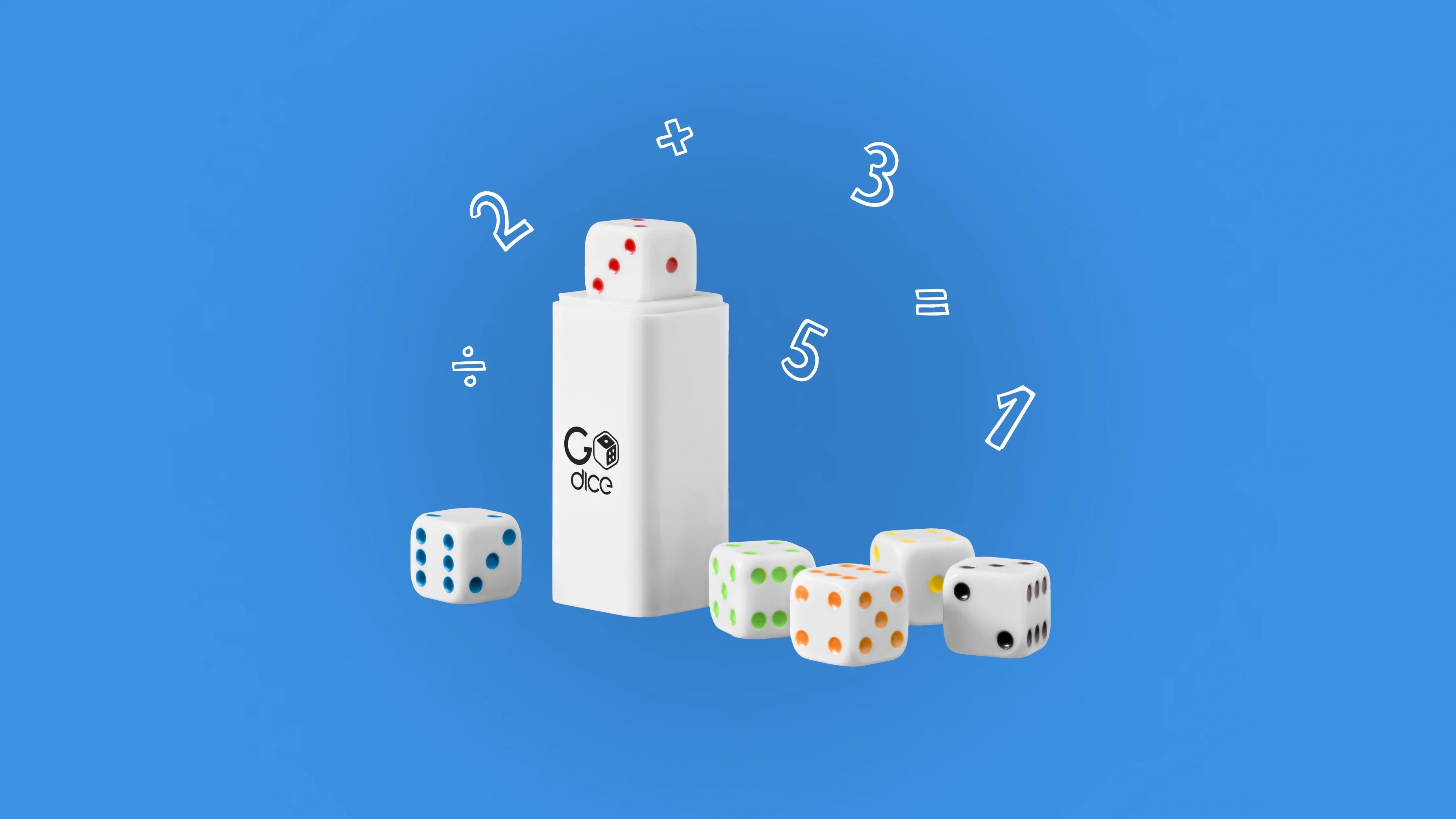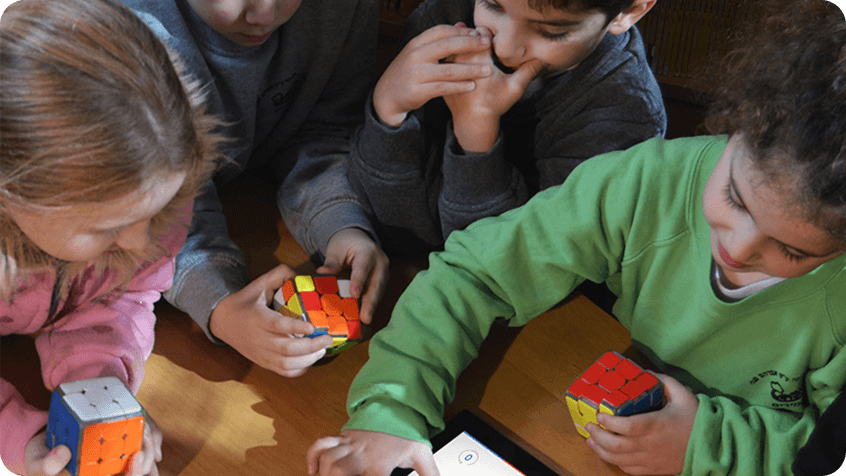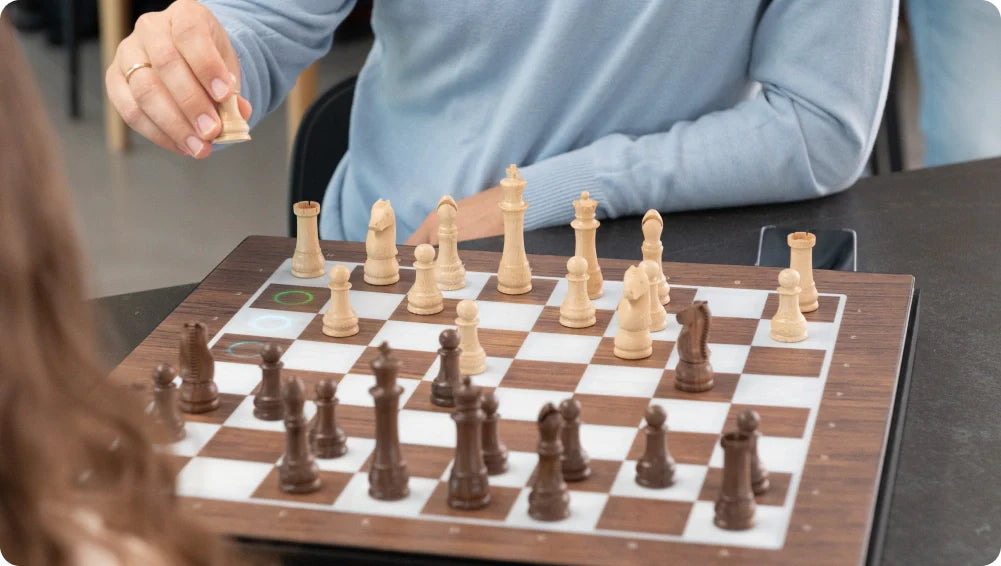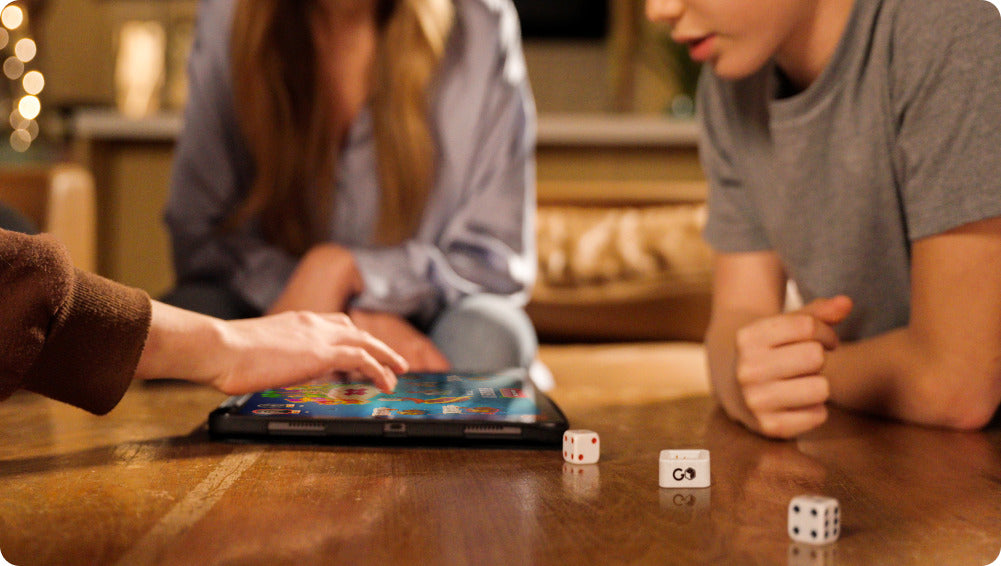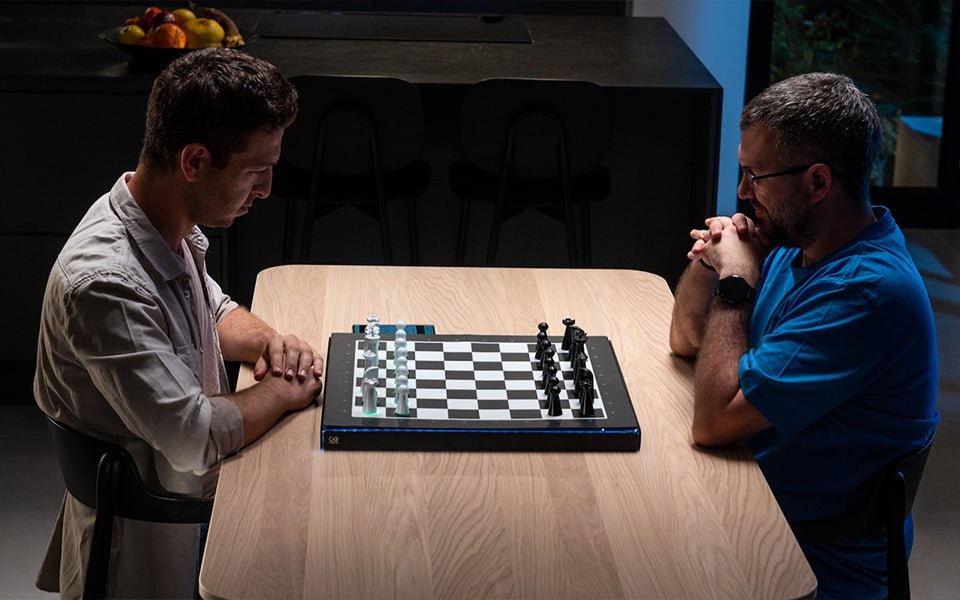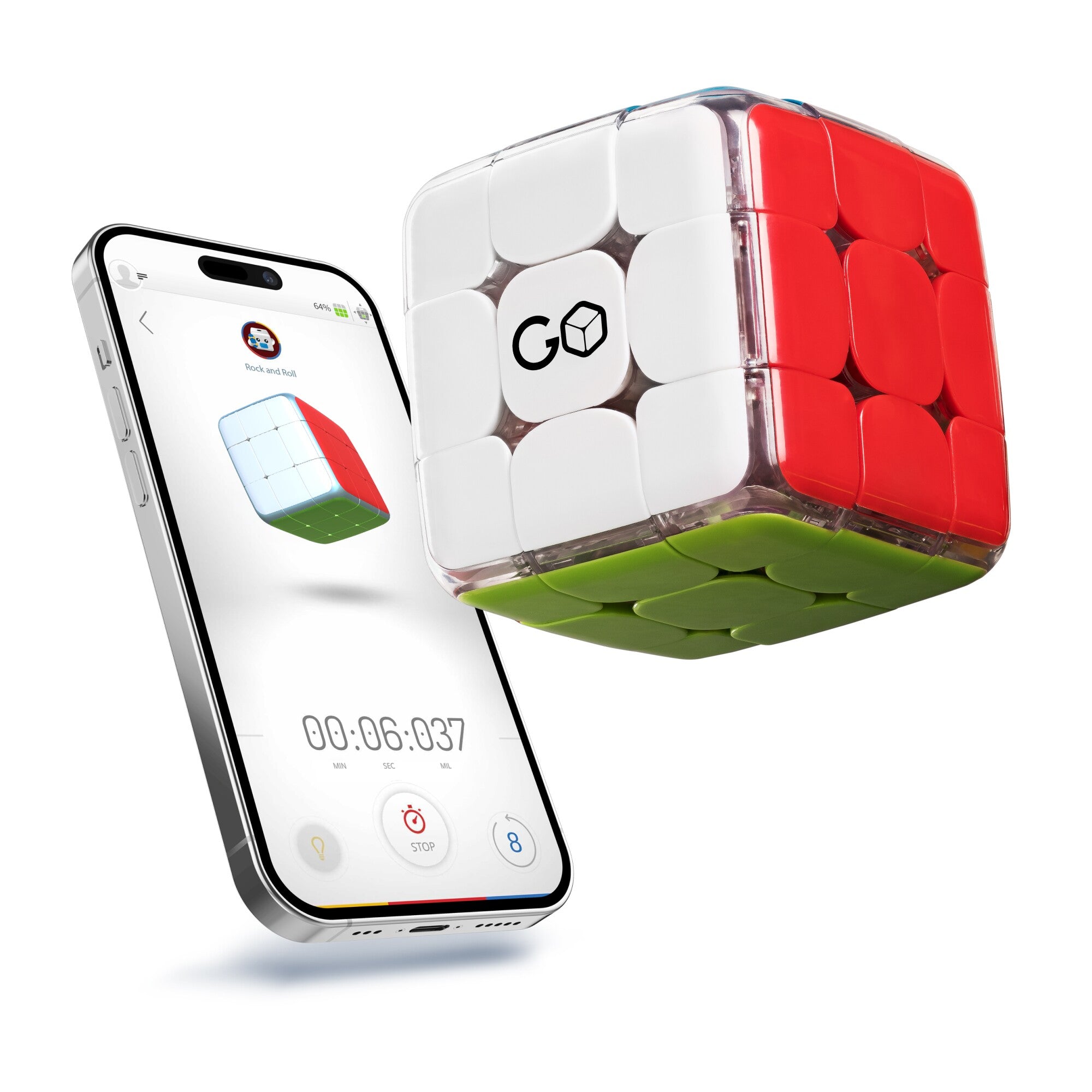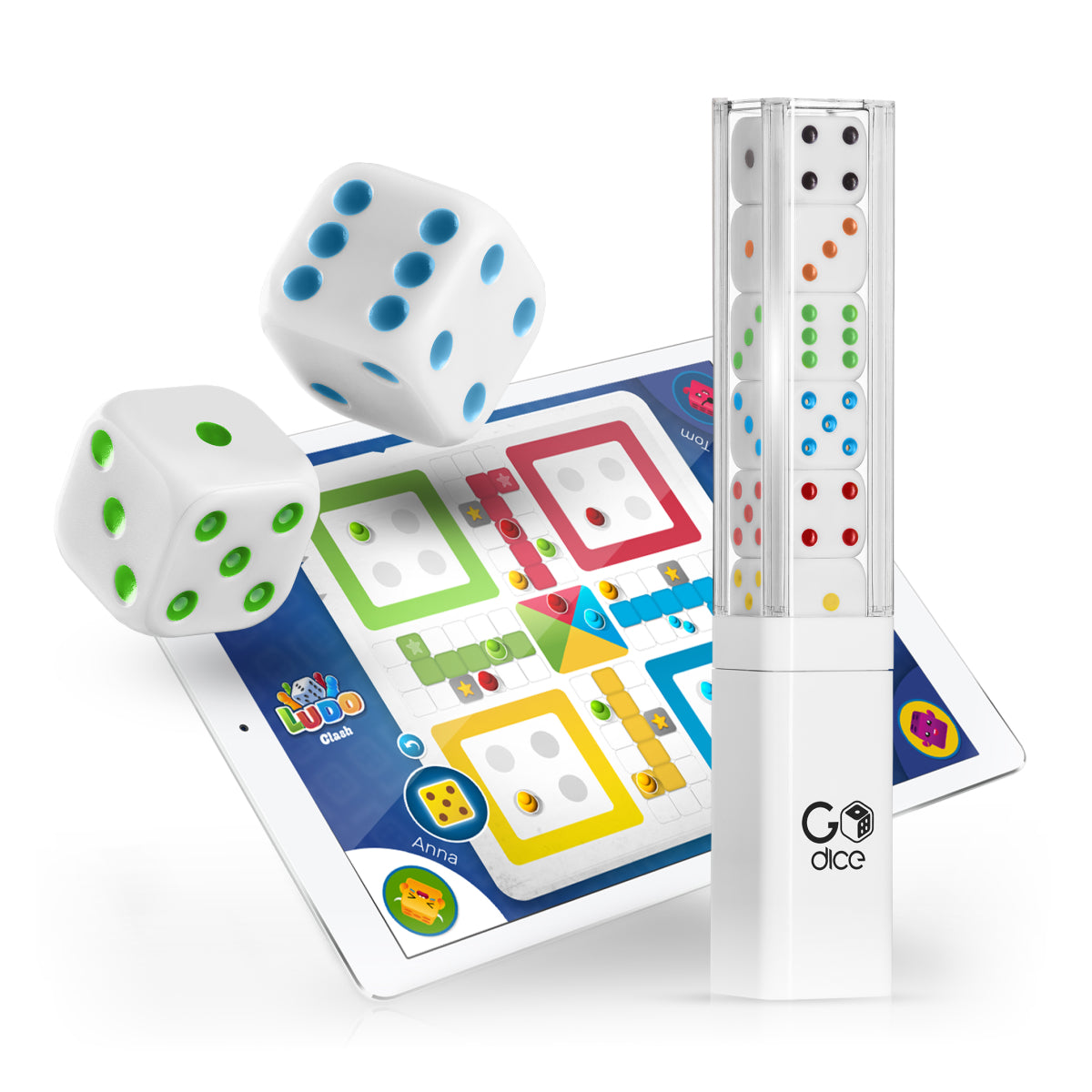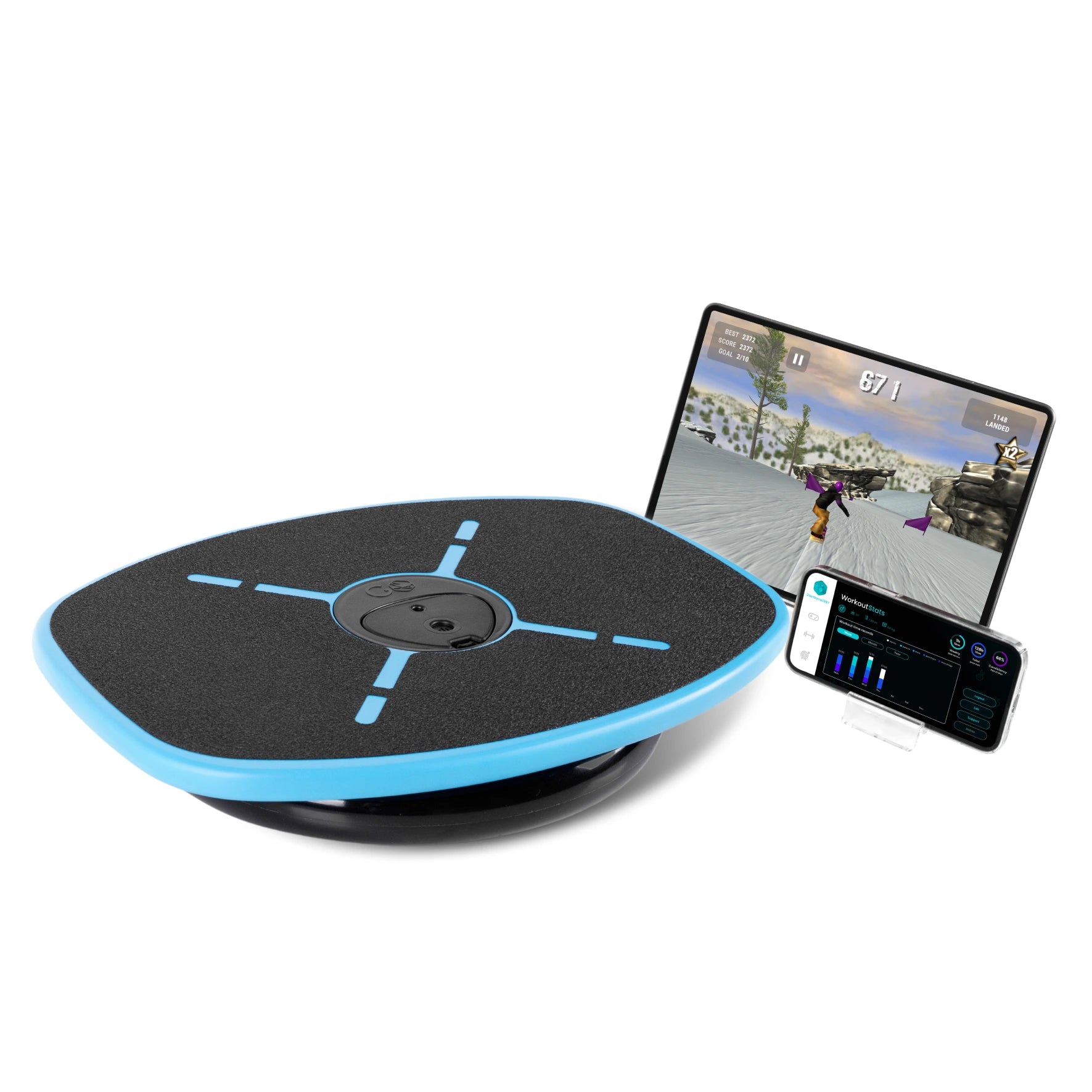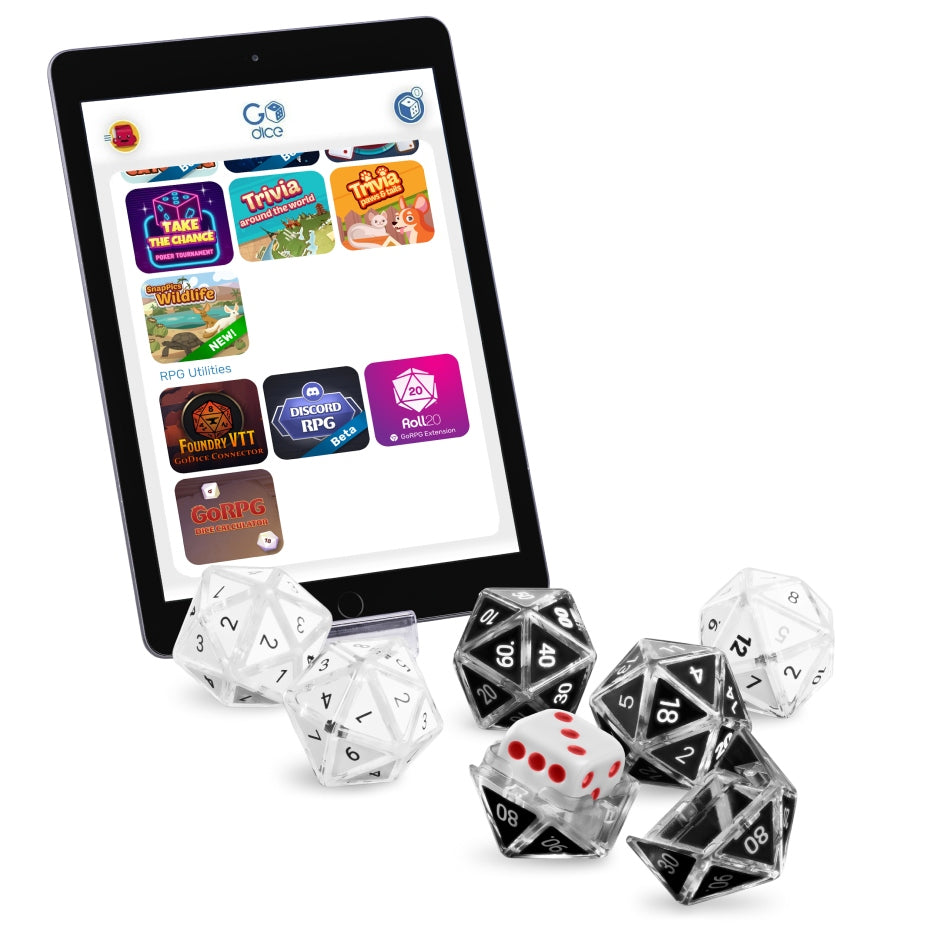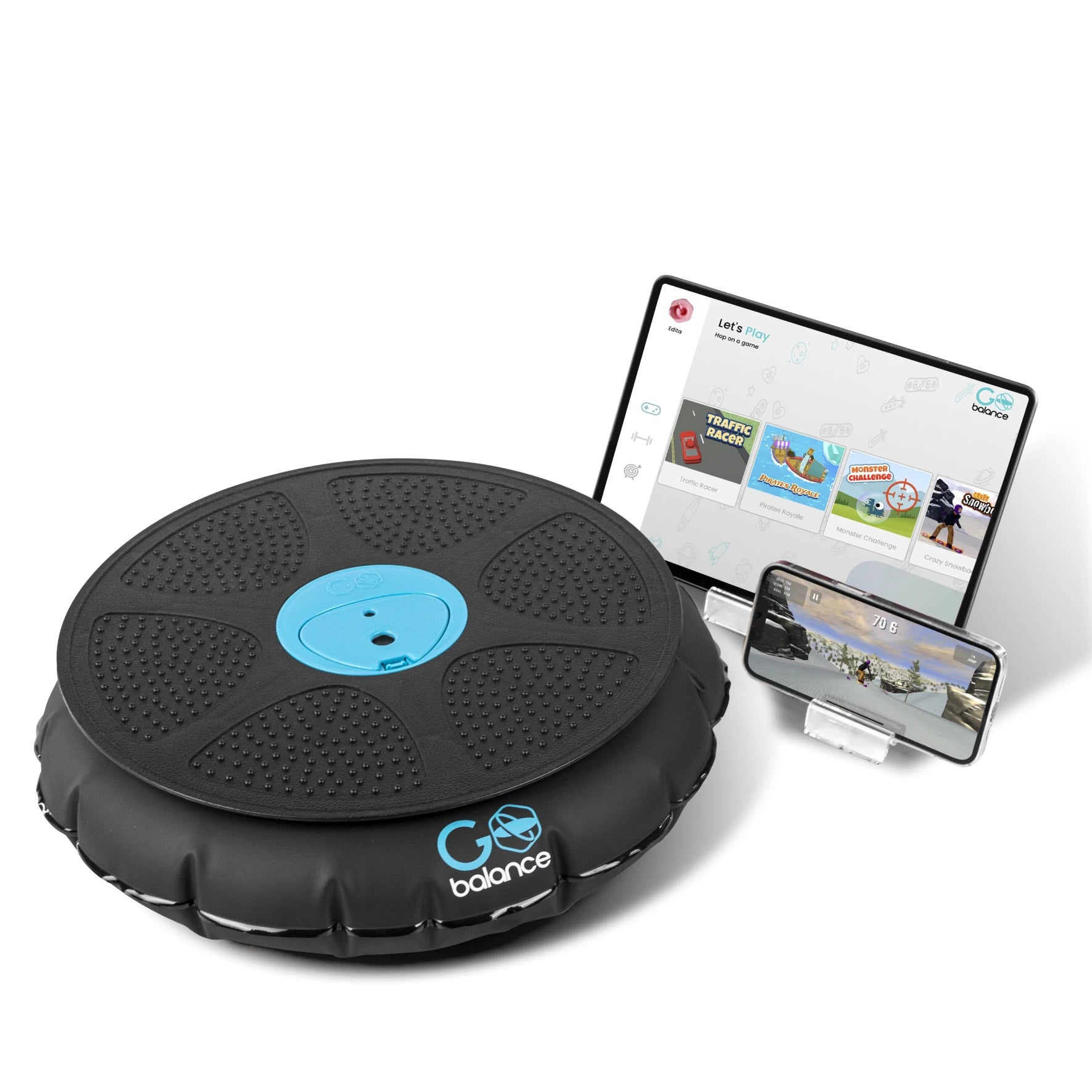Dice games have been a staple of family entertainment for generations. They're simple, fun, and versatile, making them an excellent way to engage kids of all ages in play. But dice games aren't just about fun—they're also a fantastic way to sneak in some valuable learning.
In this article, we'll explore a range of easy and fun dice games tailored for different age groups, from toddlers to teens. Each section will provide age-appropriate games, so whether you're looking for activities for young children, school-aged kids, or even teenagers, there's something here for everyone.
Whether you're a parent looking for a new brain game for kids to spend quality time or a teacher seeking to make learning more interactive, dice games could be just what you need. And with the modern twist of smart Bluetooth dice sets like GoDice, you can take these classic games to a whole new level.
Table of Contents
- Benefits of Dice Games for Kids
- Simple and Easy Dice Games for Little Kids (Ages 3-5)
- Educational Dice Games for School Kids (Ages 6-10)
- Fun Dice Games for Older Kids (Ages 11+)
- Gear Up and Get Ready for Dice Games
- Conclusion
- Frequently Asked Questions
Benefits of Dice Games for Kids
Before diving into the games, let's take a moment to consider why dice games are so beneficial for kids.
- Enhance Mathematical Skills: Dice games naturally involve numbers, making them an excellent tool for practicing counting, addition, subtraction, and even multiplication. For younger children, this can help build a strong foundation in math, while older kids can develop more complex problem-solving skills.
- Boost Fine Motor Skills: Rolling dice and moving game pieces around the board help children develop their fine motor skills, including hand-eye coordination and dexterity.
- Promote Social Interaction: Dice games are typically played in groups, encouraging children to take turns, follow rules, and engage with others. This helps in developing their social skills, such as communication, teamwork, and patience.
- Encourage Strategic Thinking: Many dice games require players to think ahead, plan their moves, and anticipate their opponent's actions, and that’s where strategic thinking comes in. This strategic element is great for older kids, helping them to enhance their critical thinking and decision-making abilities.
- Fun for All Ages: One of the best things about dice games is their adaptability. They can be simplified for younger children or made more challenging for older ones, making them a versatile addition to any family's game collection.

Simple and Easy Dice Games for Little Kids (Ages 3-5)
At this tender age, children are just beginning to grasp the concept of numbers and taking turns. The following dice games are simple enough for preschoolers yet still packed with fun.
1. Roll and Count
Roll and Count helps children recognize numbers and associate them with quantities, laying the groundwork for math skills.
How to Play: Roll a die, and have your child count out that number of objects, such as blocks or buttons. This brain game is a fantastic way to reinforce counting skills. You can introduce a second die to practice basic addition as they become more confident.
2. Snakes and Ladders

Snakes and Ladders teaches children about number sequences and counting, while also introducing the concept of luck and chance.
How to Play: This classic board game is perfect for young children. Players roll a die and move their pieces along a numbered board, aiming to be the first to reach the top. Landing on a ladder allows you to climb higher, while landing on a snake sends you sliding back down.
3. Bunny Hop

Bunny Hop is great for teaching counting, turn-taking, and even some basic addition if you use two dice.
How to Play: Create a simple board with numbers 1 through 10. Your child rolls the die and moves their bunny figure forward that number of spaces. The goal is to be the first to reach the carrot at the end of the board.
4. Color Match

Color Match is perfect for preschoolers who are learning colors and numbers. It also encourages movement and observation.
How to Play: For this game, you'll need a set of colored dice. Assign each number on the die a specific color. Roll the die, and have your child find an object in the room that matches the rolled color.
5. Dotty Dice

Dotty Dice helps children with number recognition and counting, and it’s simple enough for the youngest players.
How to Play: Roll a die and have your child count the dots on the die. Then, match the number of dots to a corresponding card or object.
Educational Dice Games for School Kids (Ages 6-10)
As children grow older and start school, they can handle more complex games that involve some basic math and strategy. These games are designed to be educational while keeping the fun factor high.
6. Addition Battle

This game makes math fun by turning it into a competition. It reinforces addition skills and helps kids become quicker at mental math.
How to Play: Each player rolls two dice and adds the numbers together. The player with the highest total wins the round. The first to win ten rounds wins the game.
7. Dice Bingo

Dice Bingo is a fantastic way to practice addition in a fun, game-like setting. Plus, it’s easily adaptable to different skill levels by varying the numbers on the Bingo cards.
How to Play: Create Bingo cards with sums of numbers. Players roll two dice and add the numbers together. If the sum is on their card, they can mark it off. The first player to complete a row wins.
8. Multiplication Roll

Multiplication Roll is a great way to reinforce multiplication skills and encourage quick mental calculations. It’s perfect for kids who are just learning their times tables.
How to Play: In this game, players roll two dice and multiply the numbers together. The player with the highest product wins the round. For a longer game, players can keep a running total of their products, and the first to reach 100 wins.
9. Math Tower

Math Tower combines math with physical play, making it a great way to practice addition while also developing fine motor skills.
How to Play: Each player rolls two dice and builds a tower of blocks according to the sum of the dice. The goal is to build the tallest tower, but be careful—if your tower collapses, you have to start over!
10. Place Value Puzzler

This game is perfect for teaching place value and number sense, important concepts in elementary math.
How to Play: Roll three dice to create a three-digit number. Players then have to place the number in the correct order on their game board. The player who completes their board first wins.
Fun Dice Games for Older Kids (Ages 11+)
Older kids and preteens are ready for more challenging games that require strategic thinking and advanced math skills. These dice games are not only fun but also intellectually stimulating.
11. Yahtzee

Yahtzee teaches probability and decision-making, making it a great game for older kids who enjoy a challenge.
How to Play: Players take turns rolling five dice, aiming to make specific combinations such as three of a kind, a full house, or a straight. The game involves both luck and strategy, as players must decide which combinations to keep and which to reroll.
12. Farkle

Farkle is a fantastic game for teaching risk assessment and probability, as players must decide when to play it safe and when to take a chance.
How to Play: In this game, players roll six dice and try to score points by making specific combinations, like three of a kind or a straight. Players must decide whether to bank their points or risk rolling again to score more, but if they don't roll any scoring combinations, they "farkle" and lose their points for that turn.
13. Tenzi

Tenzi is a fast-paced game that encourages quick thinking and number recognition. It's also a great way to practice grouping and pattern recognition.
How to Play: Each player gets ten dice. On the count of three, everyone rolls their dice, aiming to get all ten to show the same number as quickly as possible. The first player to achieve this yells "Tenzi" and wins the game.
14. Liar’s Dice

Liar’s Dice is a game of bluffing and strategy, making it perfect for older kids who enjoy games that involve both skill and psychology.
How to Play: Each player rolls five dice, keeping their roll hidden from the other players. Players then take turns making bids on the total number of a specific die value in all the players' hands, with each subsequent bid being higher. If a player is challenged and their bid is incorrect, they lose a die. The last player with dice remaining wins.
15. Balut

Balut adds an element of suspense and excitement to the traditional dice game format, making it perfect for competitive older kids.
How to Play: Balut is similar to Yahtzee but with a twist. Players roll five dice and try to make specific combinations. However, in Balut, players must also call out a "Balut" when they achieve a full house. The game is scored on a special Balut scorecard, and the player with the highest score wins.
Gear Up and Get Ready for Dice Games
Now that you’re armed with a variety of dice games to try with your kids, it's time to get the gear you need. While traditional dice have their timeless charm, there’s no reason not to bring a little bit of technology into the mix. With smart Bluetooth dice sets like GoDice, you can elevate your dice game experience to a whole new level—without losing the authentic feel of rolling real dice in your hands.
GoDice offers a modern twist on traditional dice games by combining the tactile pleasure of physical dice with the convenience and innovation of digital technology. These dice are not just smart—they’re also rechargeable, equipped with LED lights, and designed to deliver the true feeling of playing with actual dice. They seamlessly connect to an app on your smartphone or tablet, adding layers of interactivity and tracking that traditional dice can’t match.
One of the most appealing aspects of GoDice is its versatility. Instead of cluttering space with numerous heavy board games, you can have a single dice set that unlocks access to 20+ free games across different age groups—all conveniently stored in an app. Whether you're playing a classic like Yahtzee or exploring new digital-exclusive games, GoDice makes it easy to track scores, view stats, and even play solo against AI opponents.
The app also includes tutorials and guided play, making it easier for kids to learn new games and improve skills. Whether at home, on a road trip, or enjoying family game night, GoDice's sleek design and innovative features ensure it will be a hit with both kids and parents alike. GoDice brings the fun and learning of dice games into the digital age.
Conclusion
Dice games are a timeless way to bring fun and learning into your home. From simple counting games for preschoolers to complex strategy games for older kids, there's always a great way to learn how to play dice for every age and skill level. Not only do these games offer hours of entertainment, but they also provide valuable opportunities for learning and development.
So whether you're looking to introduce your toddler to numbers, help your elementary schooler practice math, or challenge your teenager with strategic gameplay, dice games have something to offer. And with the addition of smart Bluetooth dice like GoDice, you can enhance these experiences even further, making the game night more interactive and exciting than ever before.
So go ahead, roll the dice, and discover the endless possibilities of play!
Frequently Asked Questions
What is the Use of Dice in Early Childhood Education?
Dice are a fantastic tool in early childhood education because they help children learn about numbers, counting, and probability in a fun and engaging way. Games involving dice also promote fine motor skills, as children need to grasp and roll the dice, and social skills, as they learn to take turns and play with others.
What is the Ideal Age to Introduce Dice Games to Children?
Children as young as three can start playing simple dice games that involve counting and number recognition. As they grow older, they can handle more complex games that involve strategy, addition, and multiplication. By the time they reach school age, children can enjoy a wide variety of dice games that challenge their math skills and strategic thinking.
Can Dice Games Help Children Who Struggle with Math?
Yes, dice games can be particularly helpful for children who struggle with math. Because these games make math fun and interactive, they can help children overcome anxiety or frustration related to math. By practicing counting, addition, subtraction, and multiplication in a game setting, children can develop their math skills in a low-pressure environment. Plus, the hands-on nature of dice games can help children better understand abstract math concepts by visualizing them in a concrete way.
In conclusion, dice games are more than just a way to pass the time—they're a valuable tool for learning and development. Whether you're looking to boost your child's math skills, improve their fine motor skills, or just have some family fun, dice games are a great choice. And with modern options like GoDice, you can make these classic games even more engaging and enjoyable.



